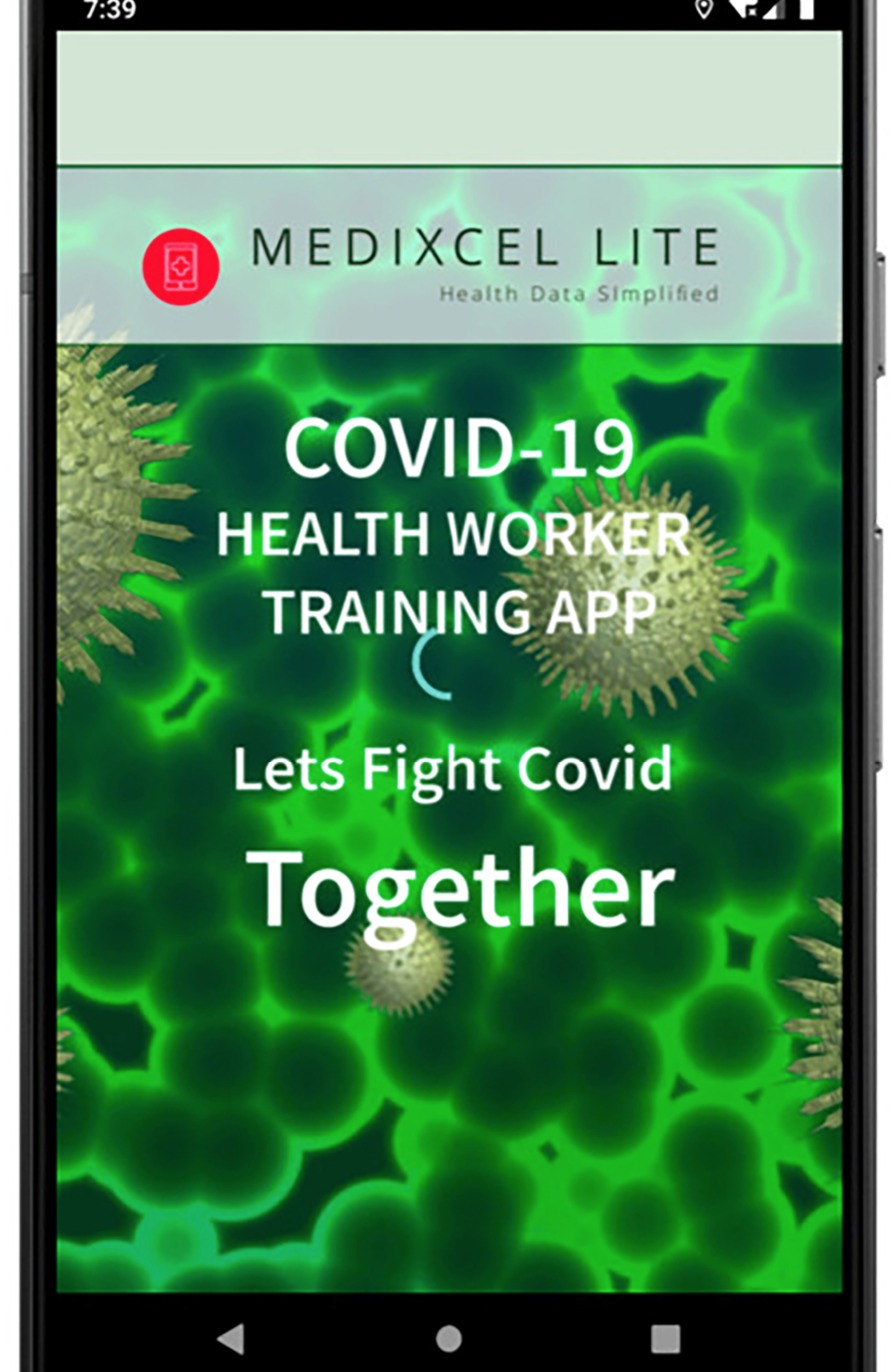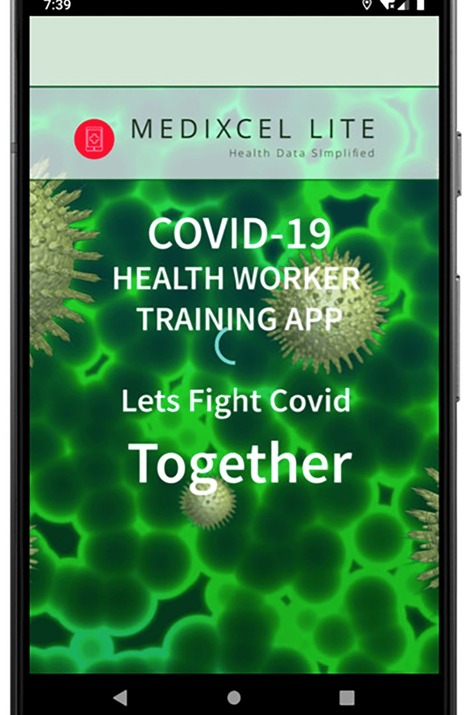health 2020

Mobile health (mhealth) tools delivered through wireless technology are emerging as effective strategies for
- delivering quality training,
- ensuring rapid clinical decision making and
- monitoring implementation of simple and effective interventions in under-resourced settings.
We share our early experience of development and deployment of the InStrat COVID-19 health worker training application (App) based on the MediXcel Lite #mHealth platform by Plus91 technologies in Ogun state, Western Nigeria where the country's first case was reported.
This App was designed to
- directly provide frontline health workers with accurate and up-to-date information about COVID-19;
- enable them to quickly identify, screen and manage COVID-19 suspects;
- provide guidance on specimen collection techniques and safety measures to observe within wards and quarantine centres dealing with COVID-19.
The App was deployed in 271 primary health care facilities in Ogun State and a total of 311 health workers were trained. Of the 123 health workers who completed knowledge pre-and post-tests, their average test score improved from 47.5(±9.4) % to 73.1(±10.0) %, P < 0.0001 after using the tutorial.
Rapid adoption and uptake were driven largely by public-private sector involvement as well as certification with reported satisfaction levels of over 95%.
Challenges encountered included a lack of universal availability of android phones for frontline health workers, lack of internet access in remote areas and a need to incentivize the workers.
The timely deployment of this App targeting primary health care workers, mostly in hard-to-reach areas, obviated the need for conventional didactic training with potential of savings in training costs and time and could be applied to similar contexts.
This novel use of mobile health training to shore up training of front line health workers in a resource-limited setting during a pandemic has applicability to similar contexts.
Lire l'article complet sur : www.researchgate.net

We discuss the concept of a participatory digital contact notification approach to assist tracing of contacts who are exposed to confirmed cases of coronavirus disease (COVID-19);
The core functionality of our concept is to provide a usable, labor-saving tool for contact tracing by confirmed cases themselves
the approach is simple and affordable for countries with limited access to health care resources and advanced technology.
The proposed tool serves as a supplemental contract tracing approach to counteract the shortage of health care staff while providing privacy protection for both cases and contacts.
- This tool can be deployed on the internet or as a plugin for a smartphone app.
- Confirmed cases with COVID-19 can use this tool to provide contact information (either email addresses or mobile phone numbers) of close contacts.
- The system will then automatically send a message to the contacts informing them of their contact status, what this status means, the actions that should follow (eg, self-quarantine, respiratory hygiene/cough etiquette), and advice for receiving early care if they develop symptoms.
- The name of the sender of the notification message by email or mobile phone can be anonymous or not.
- The message received by the contact contains no disease information but contains a security code for the contact to log on the platform to retrieve the information.
Conclusion
The successful application of this tool relies heavily on public social responsibility and credibility, and it remains to be seen if the public would adopt such a tool and what mechanisms are required to prevent misuse.
This is a simple tool that does not require complicated computer techniques despite strict user privacy protection design with respect to countries and regions. Additionally, this tool can help avoid coercive surveillance, facilitate the allocation of health resources, and prioritize clinical service for patients with COVID-19. Information obtained from the platform can also increase our understanding of the epidemiology of COVID-19.
read this concept paper at https://mhealth.jmir.org/2020/6/e20369
Lire l'article complet sur : mhealth.jmir.org

The COVID-19 pandemic is the greatest public health crisis of the last 100 years. Countries have responded with various levels of lockdown to save lives and stop health systems from being overwhelmed. At the same time, lockdowns entail large socioeconomic costs.
One exit strategy under consideration is a mobile phone app that traces the close contacts of those infected with COVID-19.
Recent research has demonstrated the theoretical effectiveness of this solution in different disease settings. However, concerns have been raised about such apps because of the potential privacy implications. This could limit the acceptability of app-based contact tracing in the general population. As the effectiveness of this approach increases strongly with app uptake, it is crucial to understand public support for this intervention.
Objective: The objective of this study is to investigate the user
acceptability of a contact-tracing app in five countries hit by the pandemic.
Methods: We conducted a largescale, multicountry study (N=5995) to measure public support for the digital contact tracing of COVID-19 infections.
We ran anonymous online surveys in France, Germany, Italy, the United Kingdom, and the United States and measured intentions to use a contact-tracing app across different installation regimes (voluntary installation vs automatic installation by mobile phone providers) and studied how these intentions vary across individuals and countries.
Results: We found strong support for the app under both regimes, in all countries, across all subgroups of the population, and irrespective of regional-level COVID-19 mortality rates.We investigated the main factors that may hinder or facilitate uptake and found that concerns about cybersecurity and privacy, together with a lack of trust in the government, are the main barriers to adoption.
Conclusions:
Epidemiological evidence shows that app-based contact tracing can suppress the spread of COVID-19 if a high enough proportion of the population uses the app and that it can still reduce the number of infections if uptake is moderate. Our findings show that the willingness to install the app is very high. The available evidence suggests that app-based contact tracing may be a viable approach to control the diffusion of COVID-19.
read the study at https://mhealth.jmir.org/2020/8/e19857
Lire l'article complet sur : mhealth.jmir.org




